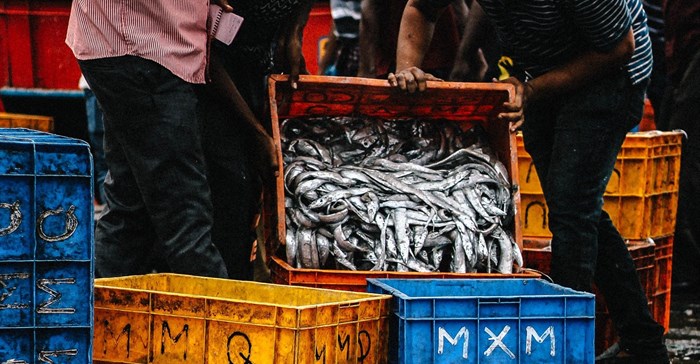When big data meets overfishing

Here are some facts about the issue:
• Much of the world's fish stocks are overfished or fully exploited, the United Nations has said, as fish consumption rose above 20 kilograms per person in 2016 for the first time.
• Global marine catches have declined by 1.2 million tonnes a year since 1996, according to The Sea Around Us, a research initiative involving the University of British Columbia and the University of Western Australia.
• IUU is not confined to the high seas; it also takes place in exclusive economic zones, and in river and inland fisheries, and is committed by both national and foreign vessels.
• Initiatives to tackle IUU are run by for-profit and non-profit groups and use satellite, data and other technologies.
• Trygg Mat Tracking (TMT), a Norwegian non-profit, is helping eight East African coastal countries and six West African nations tackle illegal fishing and fisheries crimes.
• OceanMind, a non-profit based in Britain, works with Thailand - a major seafood processing and export centre long accused of trafficking, rights abuses and IUU activities - to ensure fish going through its ports are caught legitimately.
• SkyLight uses satellite imagery and data to help nations find and catch boats fishing illegally in their waters. It is funded by Microsoft billionaire Paul Allen.
• Indonesia last year became the first nation to share its proprietary vessel monitoring system (VMS) to allow tracking of its commercial fishing fleet. Peru has promised to follow suit.
• Indonesia's VMS data is shared through Global Fishing Watch, a transparency platform co-founded by Google.
• VMS is a more secure way of tracking vessels than the automatic identification system (AIS), but access has so far been limited to governments and/or intergovernmental agencies.
• Commercial vessels broadcast AIS signals publicly, but only large vessels are required to have the system, and it can be tampered with.
• Evidence from these platforms is usually inadmissible in court but can help the authorities to look more closely at certain vessels.
Sources: FAO, ODI, Sea Around Us, Global Fishing Watch, OceanMind, SkyLight, Vulcan, FishSpektrum, Trygg Mat Tracking, Human Rights Watch, Oceana, WWF, FISH-i-Africa.
Reporting by Thin Lei Win @thinink, Editing by Robert Carmichael
Read the original article on Thomson Reuters Foundation.
Source: allAfrica

AllAfrica is a voice of, by and about Africa - aggregating, producing and distributing 2000 news and information items daily from over 130 African news organisations and our own reporters to an African and global public. We operate from Cape Town, Dakar, Lagos, Monrovia, Nairobi and Washington DC.
Go to: http://allafrica.com/





